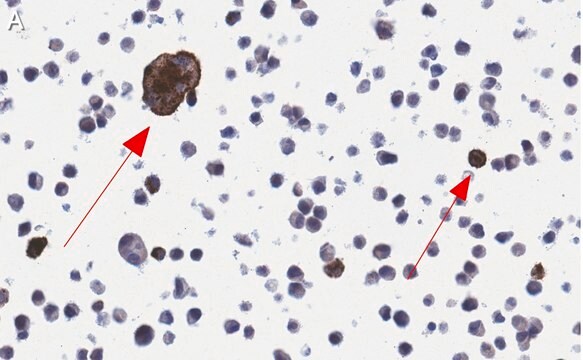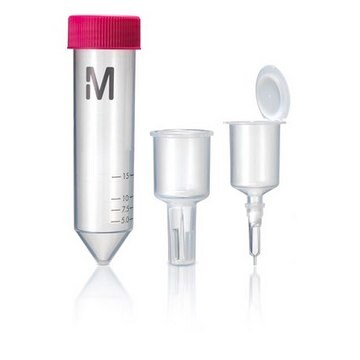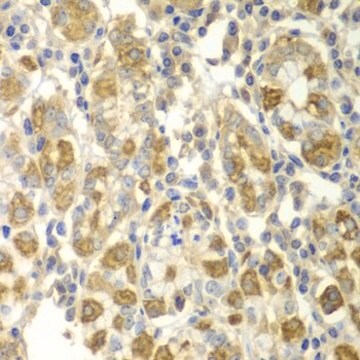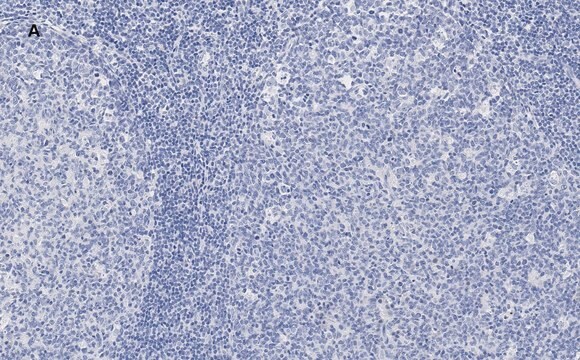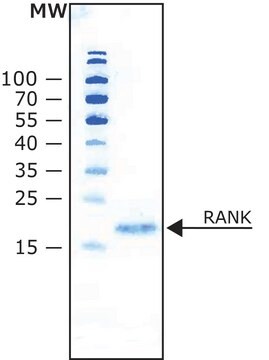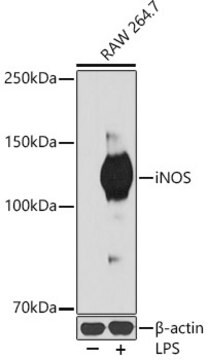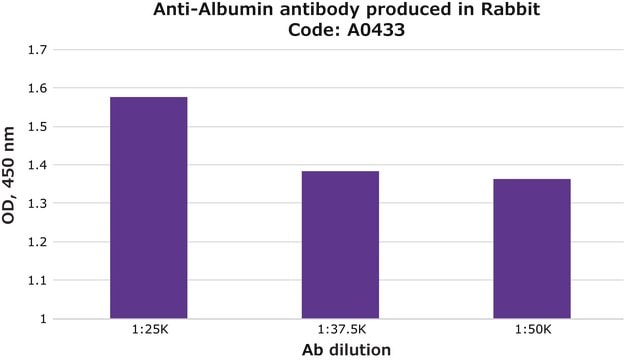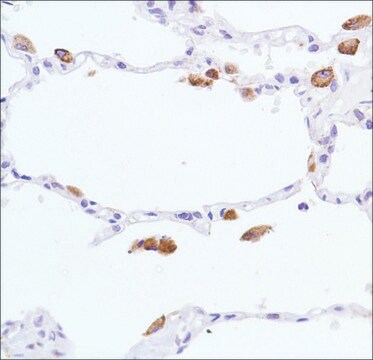ZRB2275
Anti-RANKL/TNFSF11 Antibody, clone 1H17 ZooMAb® Rabbit Monoclonal

recombinant, expressed in HEK 293 cells
Sinónimos:
CD254, ODF, OPGL, Osteoclast differentiation factor, Osteoprotegerin ligand, Receptor activator of nuclear factor kappa-B ligand, TNF-related activation-induced cytokine, Tumor necrosis factor ligand superfamily member 11
About This Item
Productos recomendados
origen biológico
rabbit
Nivel de calidad
recombinante
expressed in HEK 293 cells
conjugado
unconjugated
forma del anticuerpo
purified antibody
tipo de anticuerpo
primary antibodies
clon
1H17, recombinant monoclonal
descripción
recombinant, expressed in HEK 293 cells
Línea del producto
ZooMAb® learn more
Formulario
lyophilized
purificado por
using Protein A
reactividad de especies
human
reactividad de especies (predicha por homología)
porcine, monkey, bovine
envase
antibody small pack of 25 μL
características de los productos alternativos más sostenibles
Waste Prevention
Designing Safer Chemicals
Design for Energy Efficiency
Learn more about the Principles of Green Chemistry.
validación mejorada
recombinant expression
Learn more about Antibody Enhanced Validation
sustainability
Greener Alternative Product
técnicas
affinity binding assay: suitable
immunohistochemistry: suitable
western blot: suitable
isotipo
IgG
secuencia del epítopo
N-terminal
Nº de acceso Protein ID
Nº de acceso UniProt
Condiciones de envío
ambient
temp. de almacenamiento
2-8°C
Información sobre el gen
human ... TNFSF11(8600)
Descripción general
Especificidad
Inmunógeno
Aplicación
Evaluated by Western Blotting in Human small intestine tissue lysate.
Western Blotting Analysis: A 1:1,000 dilution of this antibody detected RANKL/TNFSF11 in Human small intestine tissue lysate.
Tested Applications
Western Blotting Analysis: A 1:1,000 dilution from a representative lot detected RANKL/TNFSF11 in Human lymph node tissue lysate.
Immunohistochemistry (Paraffin) Analysis: A 1:100 dilution from a representative lot detected RANKL/TNFSF11 in Human small intestine tissue sections.
Affinity Binding Assay: A representative lot of this antibody bound RANKL/TNFSF11 peptide with a KD of 4.7 x 10-7 in an affinity binding assay.
Note: Actual optimal working dilutions must be determined by end user as specimens, and experimental conditions may vary with the end user.
Descripción de destino
Forma física
Reconstitución
Almacenamiento y estabilidad
Otras notas
Información legal
Cláusula de descargo de responsabilidad
¿No encuentra el producto adecuado?
Pruebe nuestro Herramienta de selección de productos.
Código de clase de almacenamiento
11 - Combustible Solids
Clase de riesgo para el agua (WGK)
WGK 1
Punto de inflamabilidad (°F)
Not applicable
Punto de inflamabilidad (°C)
Not applicable
Elija entre una de las versiones más recientes:
Certificados de análisis (COA)
Lo sentimos, en este momento no disponemos de COAs para este producto en línea.
Si necesita más asistencia, póngase en contacto con Atención al cliente
¿Ya tiene este producto?
Encuentre la documentación para los productos que ha comprado recientemente en la Biblioteca de documentos.
Nuestro equipo de científicos tiene experiencia en todas las áreas de investigación: Ciencias de la vida, Ciencia de los materiales, Síntesis química, Cromatografía, Analítica y muchas otras.
Póngase en contacto con el Servicio técnico